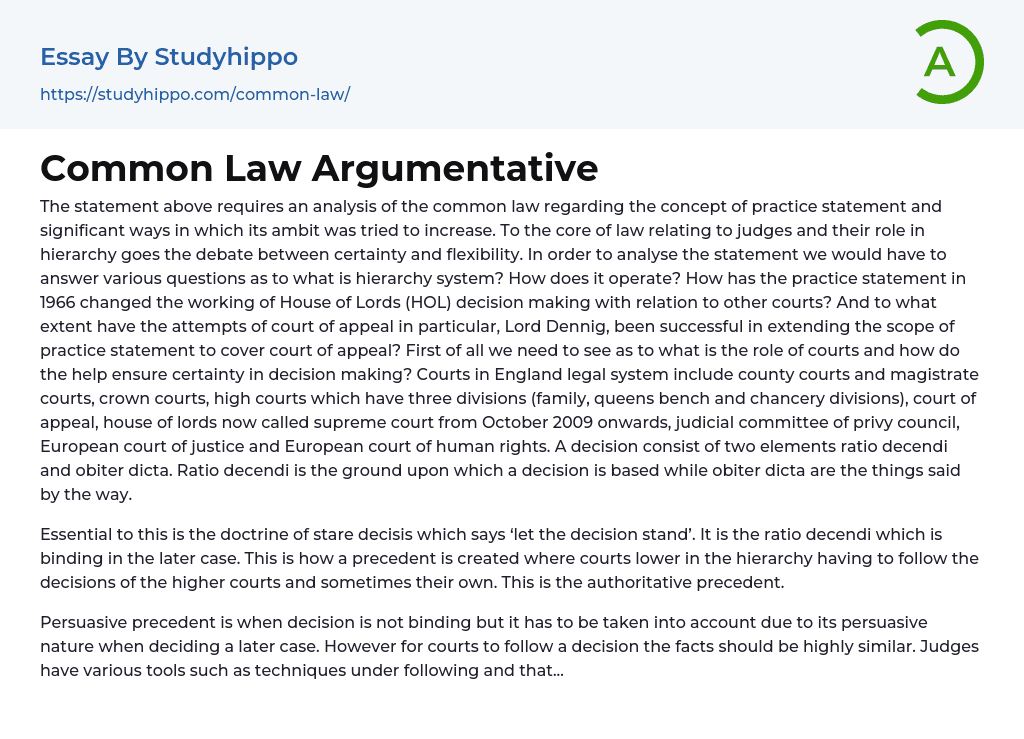The analysis of the practice statement under common law requires an understanding of the debate between flexibility and certainty in judges' roles within a hierarchy. To conduct this analysis, several questions should be answered, such as how the hierarchy system operates, what changes did the 1966 practice statement bring to HOL's decision-making process concerning other courts, and to what extent Lord Denning's efforts expanded the scope of the practice statement to cover court appeals. First and foremost, it is crucial to comprehend courts' role in ensuring decision-making certainty in England's legal system. This system comprises various courts like county courts, magistrate courts, crown courts, high courts (family, queens bench, and chancery divisions), court of appeal along with House of Lords (now Sup
...reme Court since October 2009)and international courts. A decision involves two elements: ratio decendi -the basis on which a decision is made- and obiter dicta - incidental comments.
The authoritative precedent is created through the doctrine of stare decisis, which is the principle of allowing the decision to stand. The binding component in subsequent cases is the ratio decendi. This creates a precedent where lower courts are required to follow the rulings of higher courts, along with their own previous decisions.
Persuasive precedent, while not binding, must be considered when deciding a later case due to its persuasive nature. However, for a court to follow such a decision, the facts must be extremely similar. Judges have an array of techniques at their disposal for following such a precedent.
- Jurisprudence essays
- Social Injustice essays
- Juvenile Justice essays
- Agreement essays
- Business Law essays
- Common Law essays
- Community Policing essays
- Constitution essays
- Consumer Protection essays
- Contract essays
- Contract Law essays
- Copyright Infringement essays
- Court essays
- Crime essays
- Criminal Law essays
- Employment Law essays
- Family Law essays
- Injustice essays
- Judge essays
- Jury essays
- Justice essays
- Lawsuit essays
- Lawyer essays
- Marijuana Legalization essays
- Ownership essays
- Police essays
- Property essays
- Protection essays
- Security essays
- Tort Law essays
- Treaty essays
- United States Constitution essays
- War on Drugs essays




